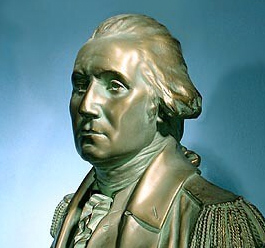On October 2, 1789, George Washington sent the proposed Constitutional amendments (the United States’ Constitution’s Bill of Rights) to the States for ratification.
On the same date in 1919, U.S. President Woodrow Wilson suffered a massive stroke, leaving him partially paralyzed, preventing him from reacting to the economic downturn following the Great War in a Progressive fashion, making his response de facto laissez faire. One insider, and skeptic of Progressive hubris, cattily referred to Wilson’s incapacitation as “a stroke of luck.”
His successor in office, President Warren G. Harding, would go on to massively cut spending as well as taxes, and take on regulation as well. He also released Woodrow Wilson’s domestic war prisoners — ranging from journalists, ordinary folk to socialist presidential candidate Eugene V. Debs — who had dissented from Wilson’s involvement in the war.
The Depression of the early 1920s, though as deep as the early 1930s, proved remarkably brief, thanks to Harding . . . and a “stroke of luck.”

1 reply on “Stroke?”
Most historians will never forgive Harding for failing to do what his Secretary of Commerce (Herbert Clark Hoover) advised.
Hoover had done a fine job in helping to get European nations back on their feet after WWI. But he failed to understand the difference between restoring an economic order after war, and healing one after misallocation due to monetary mismanagement. When he dealt with the next depression, he was basically trying to preserve and restore a system of allocation that should not have arisen in the first place.